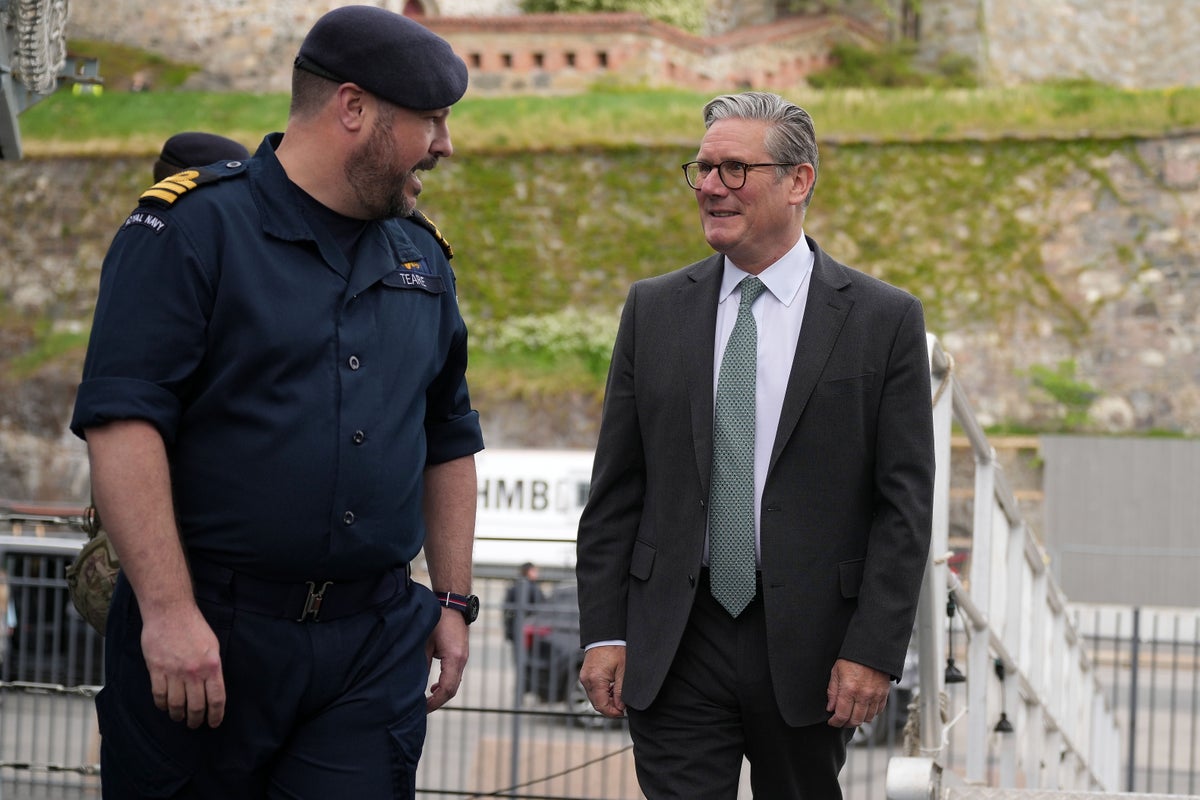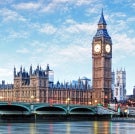
Sir Keir Starmer has declined to rule out changes to taxes on tech giants as part of a future trade deal with the United States.
The Prime Minister said discussions are “ongoing”, but that the agreement announced on Thursday “doesn’t cover” the digital services tax, a levy that applies mainly to US tech companies.
It comes as Conservative leader Kemi Badenoch said she is concerned that the UK “will probably now not get a comprehensive free trade agreement” with America following Thursday’s announcement with US President Donald Trump.
The digital services tax imposes a 2% levy on the revenues of several major US tech firms. Previous speculation had suggested that the UK could revise the measure as part of a deal.
Speaking to broadcasters on board HMS St Albans during a visit to Norway, Sir Keir said: “The deal that we signed off yesterday doesn’t cover that.
“That’s predominantly focused on steel and aluminium and reducing those tariffs on car manufacturing and reducing the tariffs there, and then future proofing for pharmaceuticals, three really important sectors, and that, as I say, will be measured in thousands and thousands of jobs that will be protected, saved and will thrive as a result of this.
“On digital services, there are ongoing discussions, obviously, on other aspects of the deal, but the important thing to focus on yesterday is the sectors that are now protected that the day before yesterday were very exposed.”
As part of the agreement, US import taxes which had threatened to cripple British high-end car makers were cut from 27.5% to 10%, while the 25% tariff on steel has also been removed.
The blanket 10% tariff imposed on imports by Mr Trump as part of his sweeping “liberation day” announcement remains in place, but talks are ongoing in a UK effort to ease it.
Kemi Badenoch has said she is “concerned” about the prospects of the UK going on to strike a full free trade agreement.
Speaking to reporters during a visit in Essex on Friday, she was asked whether she though Thursday’s deal was a success.
“It’s not a huge success at all,” she said. “It’s not even a trade deal, it’s a tariff deal, and we are in a worse position now than we were six weeks ago.
“It’s better than where we were last week, so it’s better than nothing, but it’s not much.
“One of the things that concerns me is that we will probably now not get a comprehensive free trade agreement.
A Treasury minister said earlier on Friday that the agreement was urgently needed to protect as many as 150,000 livelihoods.
Chief Secretary to the Treasury Darren Jones told the BBC: “We’ve signed that trade deal. We’ve got lower tariffs in critical manufacturing sectors in the UK, 150,000 people’s livelihoods that we’ve protected as a consequence of that trade deal.”
The terms for the deal were published late on Thursday, and stated that the UK and the US are “beginning negotiations” to “develop and formalise the proposals” that have been made.
It also suggested that either country could “terminate” the “arrangement” in the future with written notice, and it could be further altered in the future at the request of either side.
“On request of either country, the United Kingdom and the United States will consult with a view to considering any changes that may need to be made to this arrangement to ensure that it remains mutually beneficial,” the general terms for the deal say.
It also states that the US will compose a “quota” for UK steel and aluminium products, and there will also be a quota of 100,000 UK vehicles that will be allowed into the US at the newly agreed 10% tariff rate.
Source: independent.co.uk


